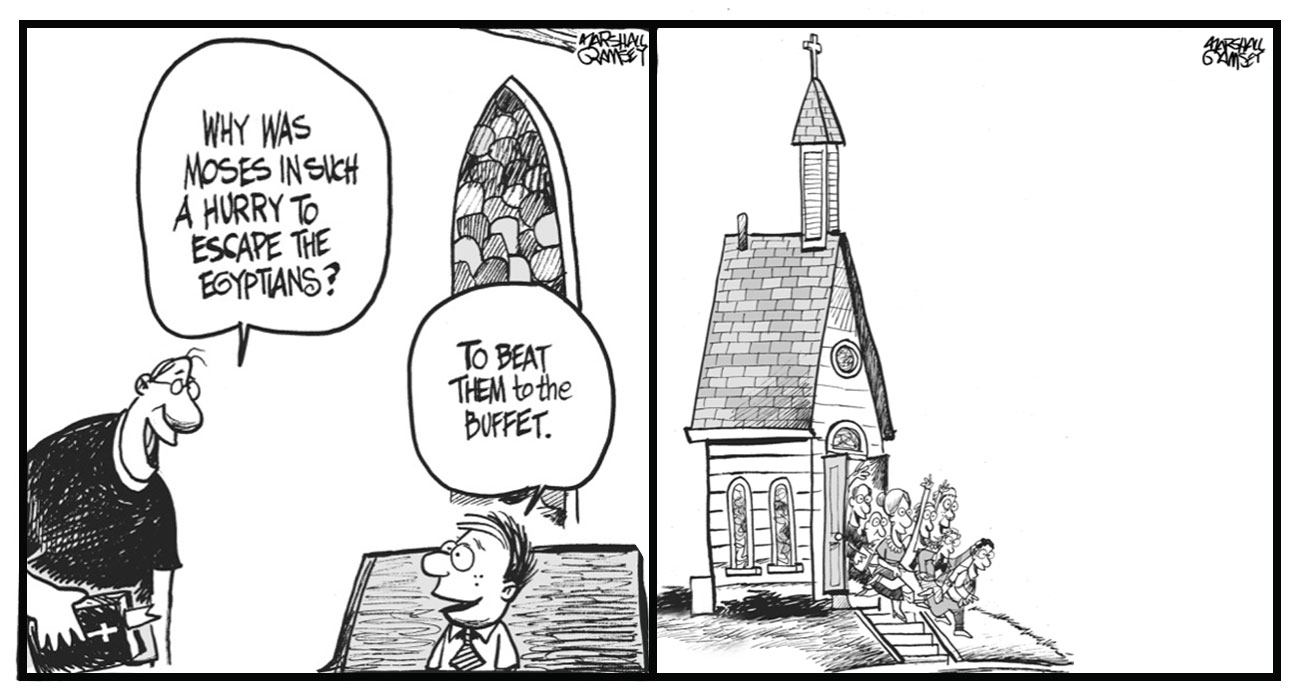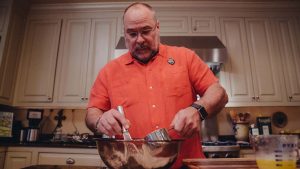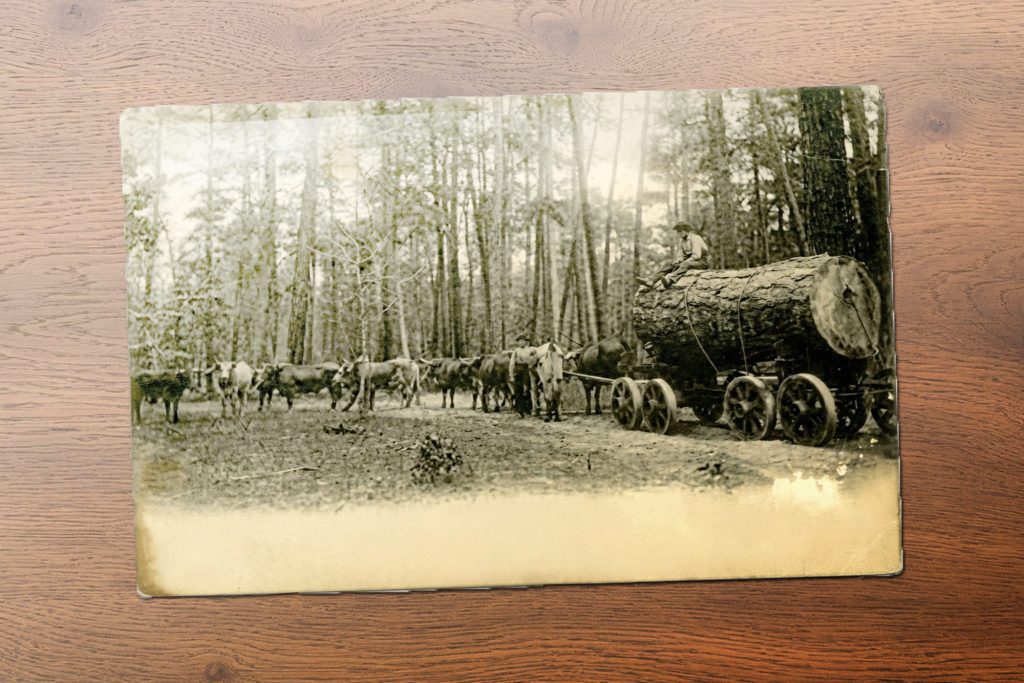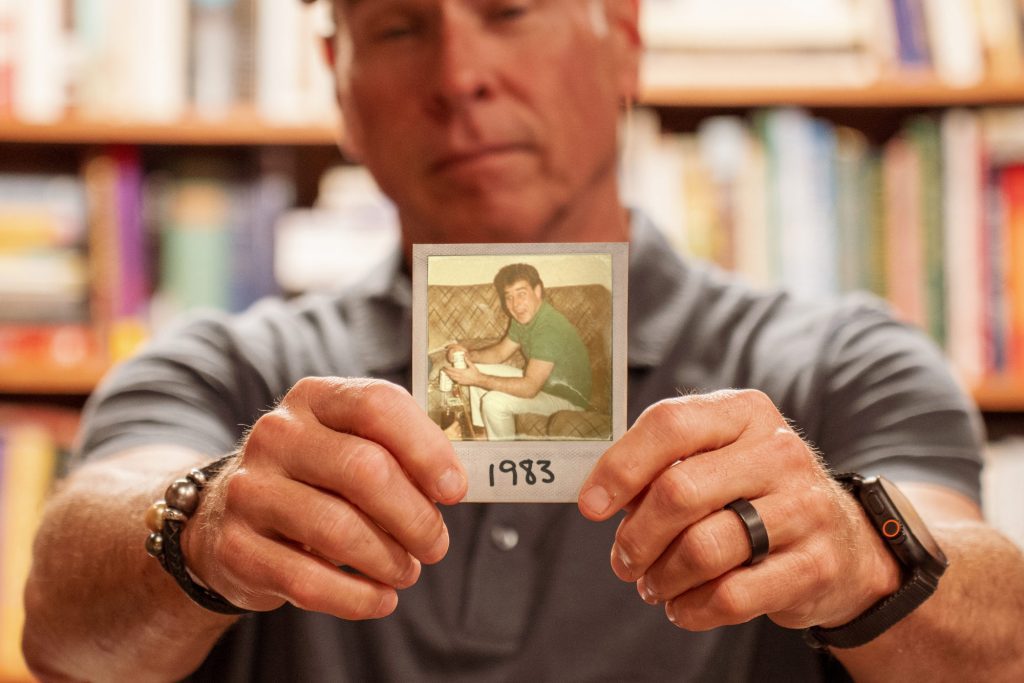This past Sunday was the first Easter Sunday in which I have missed attending a church service in a long time. My family and I were in New Orleans moving our daughter into her new apartment. We could have hit up a couple of Catholic churches near our apartment, but we spent time together and worshipped in a different way.
I am a Methodist. More accurately, I am a Methodist because my grandfather owned a pair of shoes. Thomas St. John was born in 1888 and was the oldest of seven boys. My great-grandmother was Baptist, and my great-grandfather was Methodist.
The Methodist Church in Brooksville, Mississippi was located several blocks and across the railroad tracks from my grandfather’s childhood home. The Baptist Church was only two houses away. My great grandfather would take the oldest two boys to walk to the Methodist church on Sunday mornings because they had shoes and could endure the walk on the rocky road. My great grandmother took the five youngest boys to the Baptist Church which only required a barefooted walk across the grass of their neighbor’s yards.
I was born into the Methodist Church. My father was a Methodist. My grandfather was a Methodist, and my great grandfather was a Methodist. I don’t know any family lineage beyond that point— or at least as far as religious preferences and denominations go— but I would imagine that somebody somewhere in my bloodline hung out with John Wesley.
My friend Bill Dunlap explains the denominations this way: Baptists raise you out of the gutter, Methodists clothe you and feed you, Presbyterians educate you, Episcopalians introduce you to all the right people, which sends you back into the gutter so the Baptist can pick you up again.
I am Methodist to the core. I once gave a speech in New Orleans in which I told Wesleyan-centric stories about growing up in the Methodist church and the crowd was staring at me as if I had a third eye. The stories weren’t connecting. It wasn’t until about halfway through my fourth story that I realized I was speaking to a room full of Catholics. One would think Catholics and Methodists are too far apart, but one would be wrong.
We Methodists aren’t easily identified. Catholics have the rosary, those in the Jewish faith have a Star of David, Muslims have prayer rugs. We Methodists can’t walk around with a casserole dish hanging from our necks, so we host covered-dish suppers.
Methodists are all about the food. Maybe that’s why I have always felt at home at the Methodist Church. There were always donuts in the fellowship hall before Sunday school. We may have changed to preachers every four years, but those donuts were always going to be on that table right by the coffee pot. They are still there— every Sunday for 60 years.
The covered dish suppers I experienced in my youth in the fellowship hall were some of the most impactful culinary highlights of my childhood. My church was filled with good cooks. We weren’t the type of church where the protein and dessert were provided, and everyone was instructed to bring a vegetable dish or casserole. We brought it all. No one ever considered bringing a store-bought cake or fast food fried chicken to covered dish supper night. The people who cooked in my church actually cooked, and they cooked well.
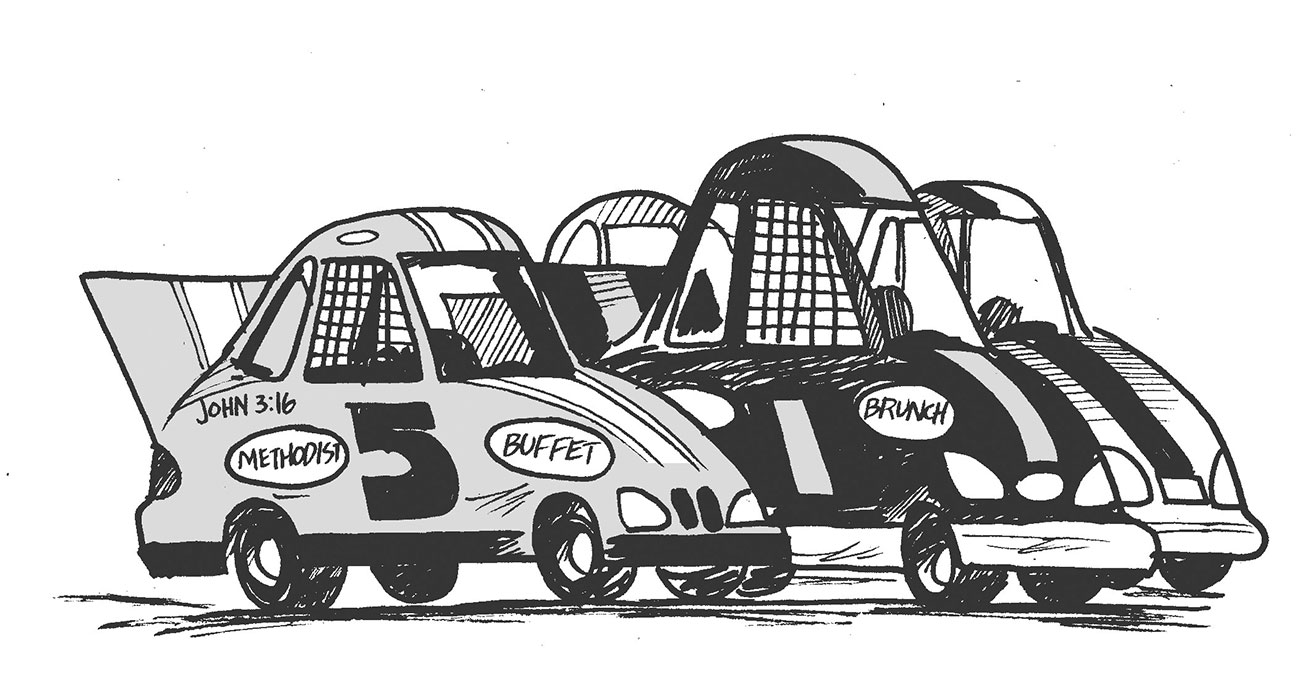
We Methodists love food. When I was a child, my family ate three Sunday lunches a month at my grandmother’s house. On the fourth Sunday, we ate at the Hattiesburg Country Club where my grandmother was a member. The most memorable part of eating Sunday lunch at the country club was not the food, but the drive there.
Set just outside the city limits among tall pines and flowering azaleas, the country club was always a memorable destination for Sunday lunch. The only thing that marred the lunch tradition was the church traffic on the way. Sunday lunch at the country club was always a race to beat the Baptists to the buffet.
As soon as the organist hit the last note of the final hymn at Main Street United Methodist Church, my mother would scoop my brother and me up and say, “Let’s go boys, we’ve got to get to the club before the Baptists let out.”
While the choir was midway through the doxology, other families would begin inching their way toward the door. The legend of the Baptists and their Sunday lunch supremacy was so serious at our church we had Methodists trying to beat other Methodists who were trying to beat the Baptists to the buffet. My brother and I were never allowed to inch early. Though when the last note of the last hymn was hit on the church organ, the church doors would fly open and we— along with hundreds of other hungry Methodists— would rush down the steps and race out to Main Street as if there was a fire in the sanctuary.
In those days, Main Street United Methodist Church was flanked on three sides by Hattiesburg’s largest Baptist churches: First Baptist to the south, Temple Baptist to the west and Main Street Baptist to the north. It took great planning to plot the route to the club that would offer the least resistance.
My mother, brother, and I would race to the old yellow Plymouth— which was already strategically parked for a quick exit— and the race would begin. We usually made better time than the other Methodists, and even the Presbyterians (who had a two-block head start), as my mom typically executed the 7th-Street cut-off maneuver which shaved valuable seconds off of our travel time.
The Baptists might have had strength in numbers, but we Methodists could be very determined and quite clever when it came to eating.
At my church, we began our morning service five minutes earlier than other churches. We still do, 10:55 a.m., sharp. I always assumed we started early because, as Methodists, we just couldn’t wait to begin our worship service. I later came to believe later that it might have been the idea of one of the elders in our church who had missed the last piece of white meat on the buffet one too many times.
I had Baptist friends who began to get antsy if the preacher’s traditional post-sermon invitation went on too long. A good Sunday for the Baptist preacher, with a lot of converts coming down to the alter to be saved, after enduring the 37th consecutive chorus of “Just As I Am,” also meant getting out late and being at the back of the buffet line with the last pick on all of the desserts.
Nowadays, all three of Hattiesburg’s big Baptist churches have moved out west with the gated communities and shopping centers. Unfortunately, there is no longer a traffic problem in downtown Hattiesburg on Sundays. But, for old times’ sake, I would like to get my mom behind the wheel— just one more time— and have her weave in and out of that Baptist traffic on our wild Sunday buffet dash.
Onward.
